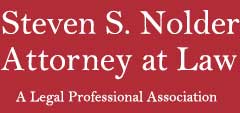What Is a White-Collar Crime?
White-collar crime is an umbrella term used to describe an array of financial crimes that a person may pursue to gain profit. The distinct identity of these crimes that separates them from blue-collar crimes is based on the person committing the crime – typically business professional – how it’s committed, how often, and how large-scale it is.
White-Collar Crimes in the Context of Federal Criminal Law
The Federal Bureau of Investigation (FBI) investigates and prosecutes a significant number of white-collar crimes in the United States. These crimes are defined as illegal actions that involve deceit, concealment, or a violation of trust for financial gain, without physical force or violence.
These crimes are traditionally committed by those of high socio-economic status in an organized culture, such as an economic crime that takes place within a business or network. In some cases, these crimes may include health and safety or environmental law violations.
Types of White-Collar Crimes
There are several types of federal white-collar crimes, including:

- Tax fraud or evasion
- Bribery or extortion
- Embezzlement (spending company or government money on personal goods or services)
- Larceny (taking the property of another with intent to sell or keep it)
- Insurance fraud
- Racketeering (illegal or fraudulent business dealings for financial gain)
- Money laundering
- Insider trading
- Investment scams (Ponzi Schemes, Pyramid Schemes, Multi-level marketing)
White-Collar Crime Defenses
The frequently seen white-collar crimes include fraud, money laundering, embezzlement, tax evasion, and internet crimes. As each white-collar crime is unique, the circumstances may alter your white-collar criminal defense attorney’s defense strategy. However, there are several reoccurring defense strategies that are commonly used to achieve a reduced sentence or punishment, or to prove the defendant’s innocence, including the following:
- Lack of Intent – This strategy is used to deflect the prosecutors notion that the white-collar crime was committed on purpose. For instance, in a tax evasion case, the defense may argue that the defendant did not intentionally make an error when filing taxes and instead made an honest mistake that should not be classified as a white-collar tax evasion crime.
- Entrapment – In order to catch someone in the act of a white-collar crime, a sting operation may be conducted. In these cases, the defense may prove that law enforcement or the informants in the case induced the crime through encouraging behavior that can be deemed as entrapment.
- Incapacity – The defense may be able to assert that the alleged white-collar crime took place due to incapacity. In order to prove incapacity, the defense must provide evidence that demonstrates that the defendant was unable to comprehend or understand the nature of the crime due to physical or mental impairment or incapacity.
- Non-Fraudulent Statements – In cases where the defendant has allegedly given fraudulent information, the defendant may be able to demonstrate that the accusing party’s actions are unreasonable due to taking an opinion or statement expressed by the defendant out of context.
White-Collar Sentences and Punishments
When determining sentences and punishments for white-collar crimes, the courts consider the effects of the alleged crime on the parties involved to curate appropriate punishments. Although white-collar crime sentences and punishments rely on the specific details of each unique case, common punishments for a white-collar crime typically include one or more of the following:
- Prison sentence
- Supervised release or probation
- Electronic monitoring or house arrest
- Monetary fines
- Restitution owed to the involved parties
- Forfeiture of the defendant’s assets, including money or property
The most effective way to mitigate the risk of severe punishments when accused of a white-collar crime is to pursue trusted legal backing as soon as possible. A reputable white-collar crime criminal defense attorney will assist you in navigating the legal system to help you achieve innocence and freedom while deterring life-altering convictions and potential incarceration.
What to Do When You’re Accused of a White-Collar Crime 
If you are accused of a white-collar crime, it’s imperative to remain calm and secure experienced legal backing with a reputable federal criminal defense attorney. Working with someone who specializes in federal white-collar crimes will help you to collect the adequate evidence and documents to support your innocence. Furthermore, it’s critical to only speak on the matter with your attorney present.
The Importance of Seeking Legal Assistance
Being accused of a white-collar crime can be a challenging and highly stressful experience that puts your reputation and career on the line. When you are faced with this situation, it’s important to work with an experienced federal criminal defense attorney who is well-versed in federal laws and regulations and who can help you build a strong defense while representing your rights and best interests.
Contact Us to Learn More
Steven S. Nolder Law Firm, LPA is headed by a federal criminal defense attorney who specializes in representing those accused of white-collar crimes. If you or a loved one is facing a white-collar crime investigation or prosecution, don’t hesitate to contact our firm to schedule a consultation with a white-collar crime expert today.
RECENT POSTS
categories
- Uncategorized
- child pornography
- Drug Offenses
- Scott & Nolder Review
- DUI
- Domestic Violence
- Criminal Defense
- reckless harm
- Criminal Charges
- Gun Control
- Sentencing
- OVI
- National Sex Offender Registry
- SENTENCING DATA
- Capital Punishment
- Illegal Reentry
- Court Behavior
- Sex Offenders
- Order of Protection
- Mortgage Fraud
- Technology
- Fraud Charge
- DNA
- Military Service
- Federal Law
- Infographic
- Jail Population
- Federal Bureau of Prisons
- Sentencing Reform
- Term of Supervised Release
- Attorney Behavior
- Reduced Drug Sentences
- Judicial Behavior
- Supervised Release
- Federal Parole
- ethics
- Legalizing Marijuana
- Attorney
- LEGAL EDUCATION
- Alcohol
- Vagueness
- Bail
- Traffic Ticket
- Manslaughter
- Gun
- Assault
- Scott & Nolder Law Firm
- Criminal Lawyer Reviews
- Consent Laws
- Internet Sex Crimes
- Bonds
- Tax Crimes
- Miranda Warning
Archives
2023
2019
2018
2016
2015
- December (7)
- November (11)
- October (2)
- September (3)
- August (9)
- July (13)
- June (8)
- May (15)
- April (10)
- March (14)
- February (1)
- January (6)
2014
- December (7)
- November (9)
- October (9)
- September (4)
- August (2)
- July (11)
- June (5)
- May (6)
- March (3)
- February (2)
- January (6)

